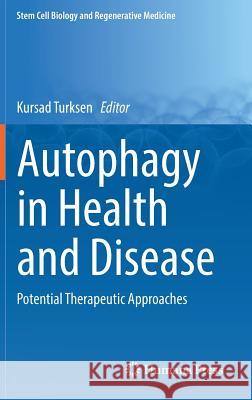Autophagy in Health and Disease: Potential Therapeutic Approaches » książka
topmenu
Autophagy in Health and Disease: Potential Therapeutic Approaches
ISBN-13: 9783319981451 / Angielski / Twarda / 2018 / 177 str.
This timely volume explores the impact of autophagy in various human diseases, emphasizing the cell biological aspects and focusing on therapeutic approaches to these diseases.











